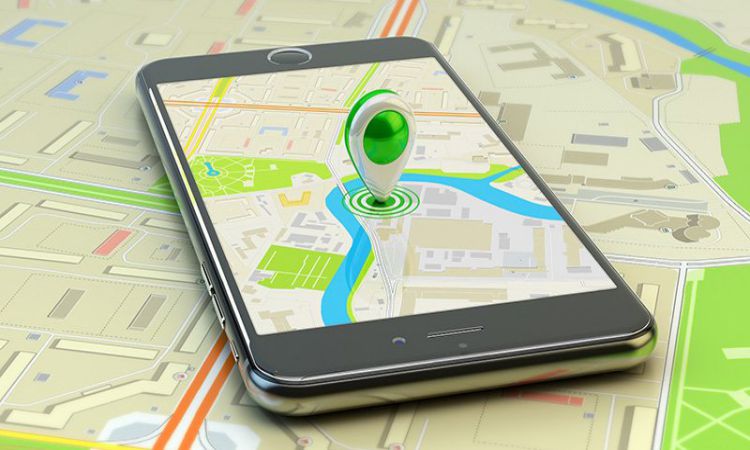 Whether you are planning a trip to an unknown place or simply wish to keep track of your vehicle, GPS can help you get to where you want to go. But how useful is this device?
Whether you are planning a trip to an unknown place or simply wish to keep track of your vehicle, GPS can help you get to where you want to go. But how useful is this device?
Table of Contents
Agricultural sector
Agricultural GPS technology allows farmers to monitor and manage fields with high precision. This allows them to work in less harsh conditions while saving them money in the process.
Using a GPS to locate farm equipment can also help reduce theft. In addition, using a GPS system can prevent equipment from running over crops. This can also help keep machinery working longer.
In addition, using a GPS system can provide farmers with valuable data for post-season analysis. Depending on the type of equipment used, GPS can help farmers determine the size of the harvest area. It can also help determine the types of crops that thrive in the area.
Another use of GPS in agriculture is mapping soil qualities. This helps determine which type of crop to plant in the area. This can also be used to determine the type of fertilizer to apply.
A GPS unit can also be used to survey plant disease and insect infestations. This can help ensure that crop advisors are not applying site-specific medication to the wrong crop.
Another useful function of a GPS is measuring the volume of chemicals that are applied per square meter. This information is useful for researchers as well as crop advisors. It is also useful for determining the proper planting depth.
Other uses of GPS in agriculture include mapping yields and mapping soil and water bodies. This is an important function as it helps farmers make informed decisions about their crop planting.
The most important function of GPS in agriculture is the measurement of soil and water qualities. This can be accomplished by using IoT-powered sensors incorporated in a GPS tracker. These devices can map soil parameters such as moisture content, texture, and bulk density. These data can then be correlated with GPS tracker data for yield mapping.
The best part is that using a GPS unit can help save money on fertilizer. This can help reduce chemical drift, which in turn benefits the environment. This function can also be complemented by using GPS-powered drones to capture images of crops as they grow.
Agricultural GPS technology has changed the way farmers do business. This technology augments the intuition of experienced farmers and helps them do their jobs in less harsh conditions.
Air, sea, and land travel
Whether you’re lucky enough to live in the good old USA or one of the other glorious enclaves of the globe, you’ll be lucky to be tethered to your seat for long enough to take advantage of the best that the GPS glories have to offer. Indeed, the fabled GPS genie has made the world a more enjoyable place to live in recent years. It is also an impressive technological marvel in the hands of a dedicated technician. Moreover, a GPS-enabled logistics system has a halo effect on the bottom line.
For the uninitiated, a GPS entails a hefty price tag, but the repercussions are well worth the price. The GPS genie’s many virtues include enhanced driver safety, more efficient fuel consumption, and reduced stress on the vehicle’s occupants. Indeed, the GPS genie has become a veritable best friend for many an airline or logistics system. It also paves the way for a better and more informed workforce.
Tracking solutions for fleets
Whether you’re a small business owner or a large corporation, GPS tracking solutions can improve your operations. They can also help you to streamline maintenance and ensure a safe fleet.
Some of the features of fleet tracking solutions include real-time traffic analytics, automatic scheduling of maintenance checks, and alerts that can be set up for unauthorized trips, vehicle malfunctions, and more. All this information can help you to improve your fleet’s performance and cut fuel costs.
FleetSharp has been developing GPS tracking solutions for businesses for more than 10 years. With their innovative M2M technology, they are able to monitor and analyze the behavior of drivers, vehicles, and fleets in real time.
NexTraq GPS fleet tracking solutions offer accurate data and reports on the location and behavior of vehicles. The GPS tracking solution can help fleet managers to monitor vehicle usage, fuel consumption, idle time, and other driver behaviors. They can also help fleet managers reduce the number of unauthorized trips, which can lead to safety issues.
Positioning Universal’s GPS tracking solutions include the solar-powered TT603 solution. The TT603’s tracking data is transmitted directly to the cloud, which means that it can be viewed by fleet managers in real time.
GPS Trackit is an easy-to-use device that makes fleet management a breeze. It has a responsive and user-friendly interface and offers customizable reporting tools. The device also includes customizable features that help to improve fleet performance.
Teletrac Navman is one of the top providers of web-based GPS fleet tracking solutions. The GPS fleet tracking solution offers real-time updates to clients and accurate data about the engine status and driving hours. It also includes geofencing, which allows users to set up alerts to notify them when a vehicle enters a particular radius.
Positioning Universal’s GPS tracking devices can help fleet managers monitor the location of vehicles and monitor their usage. They include real-time engine diagnostics, which can automate routine inspections. The solution also includes NFC fobs, which enable drivers to track their journeys using real-time data.
Teletrac Navman’s GPS fleet tracking solution also offers real-time engine diagnostics, which can alert drivers of specific faults. Its solutions also include geofencing, which helps fleet managers to track the locations of their vehicles and prevent unauthorized trips.






